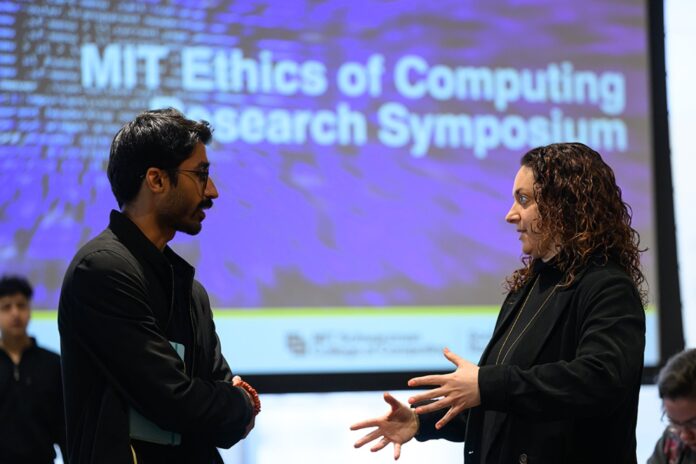Introduction to MIT’s SERC Symposium
The Massachusetts Institute of Technology (MIT) recently hosted a symposium where faculty members presented their research on the social, ethical, and technical considerations of computing. The event, organized by the Social and Ethical Responsibilities of Computing (SERC) initiative, featured 15 TED Talk-style presentations and a poster session. The symposium aimed to showcase the breadth and depth of research being done at MIT on the social and ethical responsibilities of computing.
Key Themes and Presentations
The full-day symposium was organized around four key themes: responsible healthcare technology, artificial intelligence governance and ethics, technology in society and civic engagement, and digital inclusion and social justice. Some of the highlights from the symposium include:
Making the Kidney Transplant System Fairer
Dimitris Bertsimas, vice provost for open learning, presented his work on developing a new algorithm for fair and efficient kidney transplant allocation. The algorithm can examine criteria like geographic location, mortality, and age in just 14 seconds, a significant improvement from the usual six hours. This research has the potential to make the kidney transplant system fairer and more efficient, saving lives in the process.
The Ethics of AI-Generated Social Media Content
Adam Berinsky, Mitsui Professor of Political Science, and Gabrielle Péloquin-Skulski, PhD student in the Department of Political Science, explored the implications of disclosing or not disclosing AI-generated content on social media. Their research found that labeling AI-generated images with a process-oriented label can reduce belief in both false and true posts, highlighting the need for more nuanced labeling strategies.
Using AI to Increase Civil Discourse Online
Lily Tsai, Ford Professor of Political Science, presented her research on using AI to increase civil discourse online. Her team has developed an AI-integrated platform for deliberative democracy, DELiberation.io, which aims to enhance the benefits of online spaces for deliberation. The platform has been tested in lab studies, and the team is working on forthcoming field studies, including a partnership with the government of the District of Columbia.
A Public Think Tank for AI
Catherine D’Ignazio, associate professor of urban science and planning, and Nikko Stevens, postdoc at the Data + Feminism Lab at MIT, presented their work on Liberatory AI, a public think tank that considers all aspects of AI. The think tank has gathered researchers from diverse institutions and disciplines to author position papers on the current state of AI systems and engagement. The goal of Liberatory AI is to contest the status quo and think bigger-picture, reorganizing resources in the AI system to drive societal transformation.
Conclusion
The MIT Ethics of Computing Research Symposium showcased the innovative research being done at MIT on the social and ethical responsibilities of computing. The presentations highlighted the importance of considering the social, ethical, and technical implications of computing and AI. As technology continues to evolve and become more integrated into our lives, it is crucial that we prioritize responsible and ethical development. The research presented at the symposium demonstrates the potential for technology to drive positive change and improve lives, and it is essential that we continue to support and advance this work.

